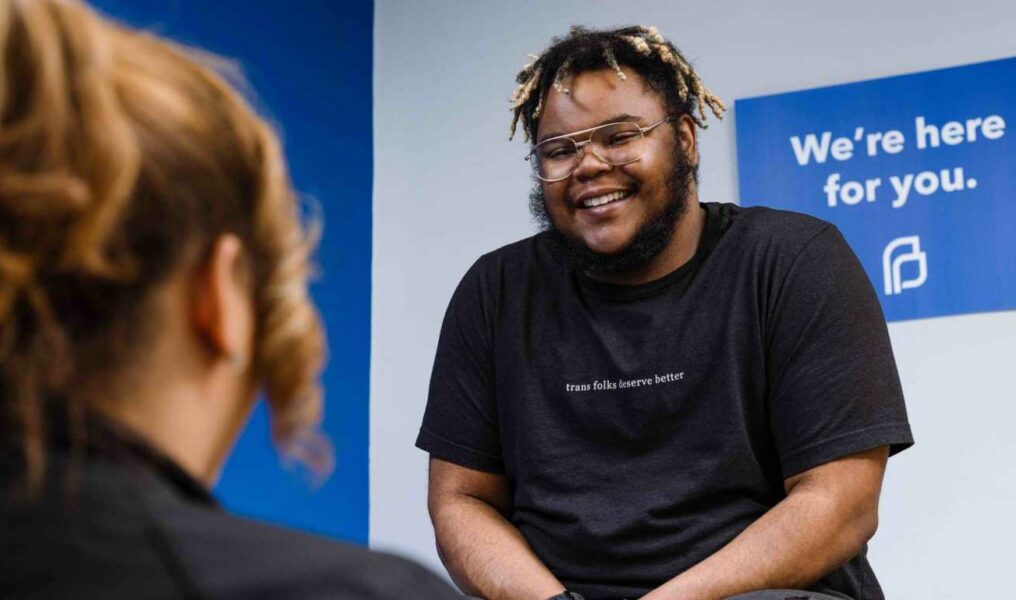Planned Parenthood Rolls Out Gender-Affirming Care at Michigan Health Centers
Services Will Roll Out Across Michigan by End of Year

Known for delivering vital health care, sex education and sexual health information to people of all ages, gender identities, national origins, races and sexual orientations, Planned Parenthood of Michigan (PPMI) now offers gender-affirming hormone therapy as well. Currently available at its Lansing and Marquette health centers, services are scheduled to roll out to centers across the state by the end of 2022.
The two Michigan locations join 41 other nationwide affiliates of the Planned Parenthood Federation of America in offering gender-affirming care.
“‘Gender-affirming care’ means embracing the gender identity people share with us and supporting people in expressing their most authentic selves,” said Dr. Halley Crissman, director of gender-affirming care and associate medical director at Planned Parenthood of Michigan. “This means providing excellent care to people of all genders without judgment or cisgender assumptions; competency in specific gender-affirming medical, surgical and non-medical transition interventions; and care that acknowledges the injustices and trauma the trans community face.”
Specifically, the participating health centers can offer feminizing hormone care in the form of the testosterone-blocking medications spironolactone and finasteride, in addition to estradiol medications delivered as injections, patches and pills either swallowed or dissolved under the tongue. Progestin medications may be used, too.
Masculinizing hormone care can mean testosterone medications — injections or gels — and finasteride for scalp hair loss management. All gender-affirming care, including “microdosing,” or intermediate dose hormones, are available to individuals age 18 and older and take into account any underlying medical conditions or concerns.
Yet Planned Parenthood recognizes that each individual expresses their gender identity uniquely. “There's no requirement that a trans or nonbinary person receives any sort of hormone or surgical therapy in order to be trans,” Crissman said. “There are many different ways that people express and feel their gender identities.

A mental health referral is not required by Planned Parenthood in order to access gender-affirming care. Instead, the centers implement an informed consent model of health care. Patients discuss the risks and benefits of hormone therapy with a PPMI clinician and determine the appropriate course of care.
Crissman said this is particularly significant because, historically, medical providers have practiced a form of gatekeeping that has required patients to have clearance from a mental health provider in order to receive gender-affirming care.
“We feel that this practice is largely rooted in transphobia and provides or sets up unnecessary gatekeeping where individuals essentially need to prove their transness to a mental health provider in order to receive critical care,” Crissman said. “This practice is also rooted in a transphobic misunderstanding of trans and nonbinary identities as a pathology or a mental health condition.”
Information on what to expect from an appointment for gender-affirming care can be found on the Planned Parenthood of Michigan website, where visitors will also find a comprehensive "myth busting" section as well as FAQs. This resource, which includes links to self-injection videos for intramuscular and subcutaneous injections and how hormone prescriptions are handled at the pharmacy, was made possible with the input of a statewide community advisory board.
The comprehensive resource explains everything from the fertility implications of hormone therapy to the medical billing codes used for gender-affirming care.
“We think it's really important that gender-affirming care centers the voices and the needs of people who are gender diverse and is patient- and community-centered,” Crissman said. The Board is comprised of 19 individuals of various gender identities and backgrounds from across the state, the majority of whom are trans and nonbinary. The group provides input on everything from protocols to staff training, as well as the website, communications and advertising.
“That group is currently meeting monthly and is helping to keep us centered and focused on meeting the needs of the trans and nonbinary community, which is the goal,” Crissman said.
While Planned Parenthood plans to integrate gender-affirming care into the services available at all of its health centers, Lansing and Marquette were the first designated locations for a reason.
“We recognize that patients in northern and rural parts of Michigan face some of the biggest barriers in accessing gender-affirming care,” Crissman said. “One important way to do that is through offering gender-affirming hormone care via our telehealth services. And while there are still a few logistics we are working on, we're confident that we will have gender-affirming hormone care available via our telehealth service by the end of the year.”
Most gender-affirming hormone care is provided at PPMI by advanced practice providers (physician assistants, certified nurse midwives, and nurse practitioners) and is overseen by Crissman, with whom clinicians consult as needed. PPMI accepts many insurance plans, including Michigan Medicaid. For those without insurance, services are available on an income-based sliding scale.
Crissman said she feels honored to be able to provide life-saving and affirming medical care and to support the trans and nonbinary community which continues to face discrimination, violence and politicization of their healthcare. She also acknowledged that Planned Parenthood continues to learn and grow on their journey to be more gender-affirming and a safer space for transgender and nonbinary people.
“While all health care should be affirming, for many trans and nonbinary folx, hormone care, or HRT, is an important component of care,” Crissman said. “Specifically, for many gender-diverse people gender-affirming hormone care improves gender dysphoria and supports gender euphoria by helping individuals to achieve the embodiment goals that best align with their identity.”









